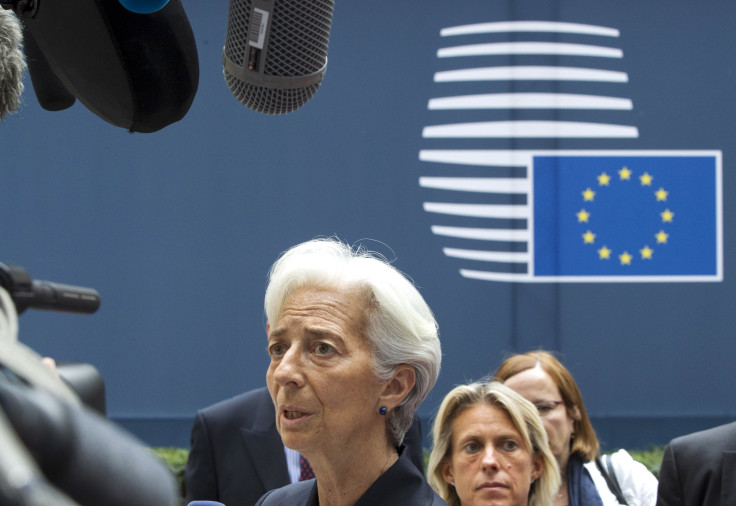IMF Rejects Greek Bailout Package, Widening European Rift On Greece

The International Monetary Fund (IMF) has determined it cannot offer funding toward a third bailout for Greece, citing astronomical levels of debt and a poor record of government follow-through on reforms.
The evaluation, reported by Financial Times on Thursday, throws the Europewide political effort to save financially troubled Greece into doubt. Influential German officials have made clear that no bailout would be possible without IMF participation. Without a bailout, Greece faces the prospect of having to exit the eurozone, a prospect that commentators have called the Grexit.
While the IMF will continue to participate in bailout talks currently taking place in Athens, Greece, it will be months before the lender will be able to agree to a new program. IMF bylaws stipulate that the institution cannot make loans when the country receiving them lacks the capacity to make reforms or can't sustain its debt.
According to documents obtained by Financial Times, IMF determined that Greece failed to meet either of those expectations. A previous IMF paper called Greece's debt "highly unsustainable."
In order to receive its third bailout in five years, this time projected at around $94 billion, Greece would need approval from the three institutions that make up the so-called troika: the European Union's governing body, the European Central Bank and the IMF.
IMF chief Christine Lagarde has previously made clear that no deal is possible without deep debt relief, potentially in the form of a write-down of Greece's liabilities. That stance clashes with that of Germany, the largest economic power in the eurozone, whose finance minister Wolfgang Schäuble has consistently demanded that Greece's overall debt remain intact.
But as Greece's former finance minister Yanis Varoufakis has said, the IMF and Schäuble may indeed share a common view: "They don’t want this deal to go ahead."
Still, negotiators face a hard Aug. 20 deadline to hammer out some form of financing that will keep Greek banks and businesses open until the country can make an economic turnaround. In late June, the European Central Bank capped its financing to Greece, forcing Athens to close its central bank and sending the country's economy into a tailspin.
The political situation in Greece, meanwhile, offers scant comfort to creditors. Prime Minister Alexis Tsipras faces internal opposition within his left-wing Syriza party, which came to power in January on an anti-austerity platform. After six months of brinksmanship and political provocation, Tsipras accepted austerity-inducing reforms earlier this month, leading to a raft of resignations from the radical wing of the party.
That instability, together with the sheer size of Greece's existing debt, has made IMF member states wary of launching into another bailout. According to the board meeting minutes acquired by Financial Times, non-European board members stressed the need for Lagarde to "protect the reputation of the Fund."
© Copyright IBTimes 2024. All rights reserved.












